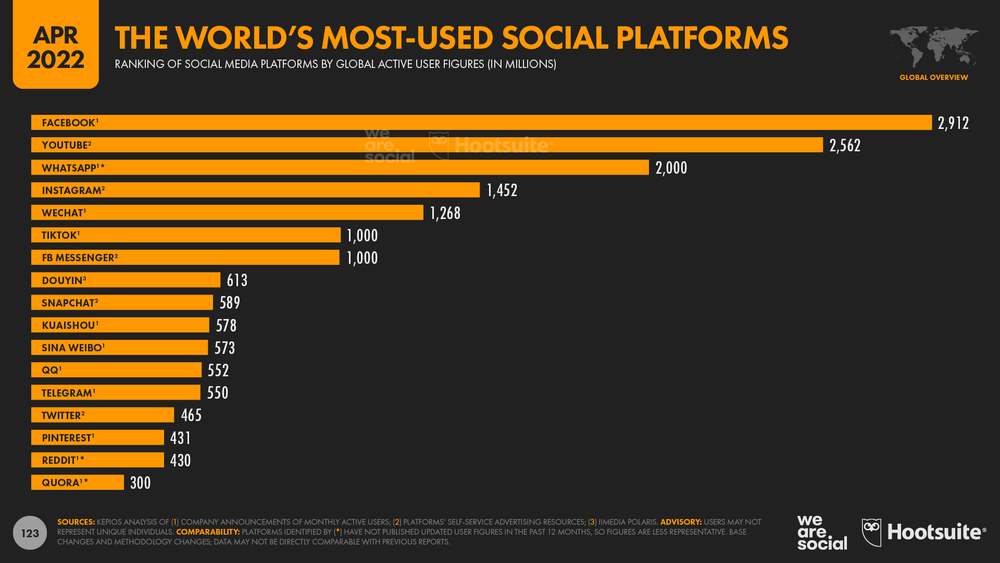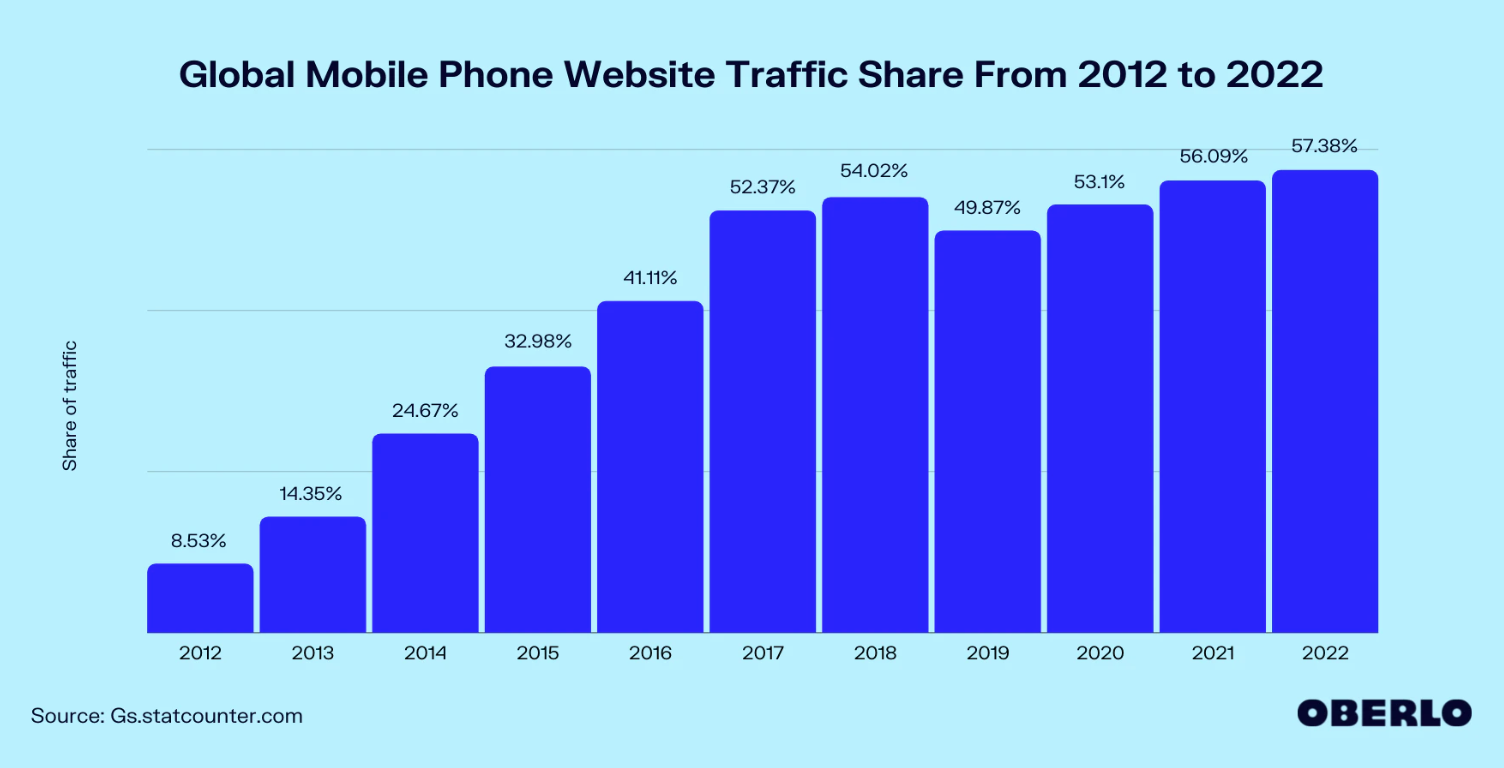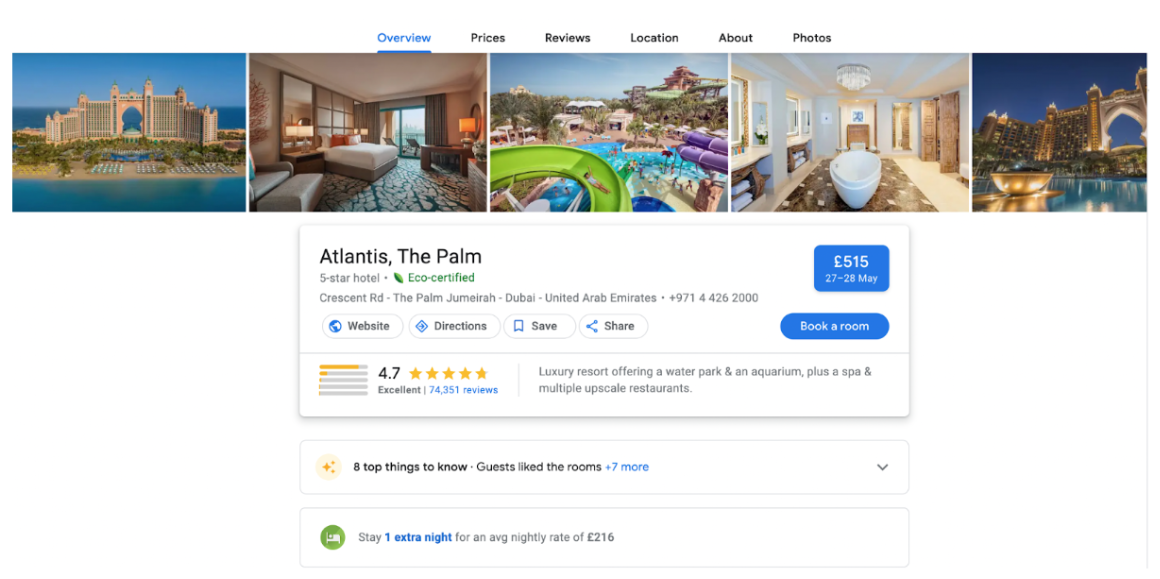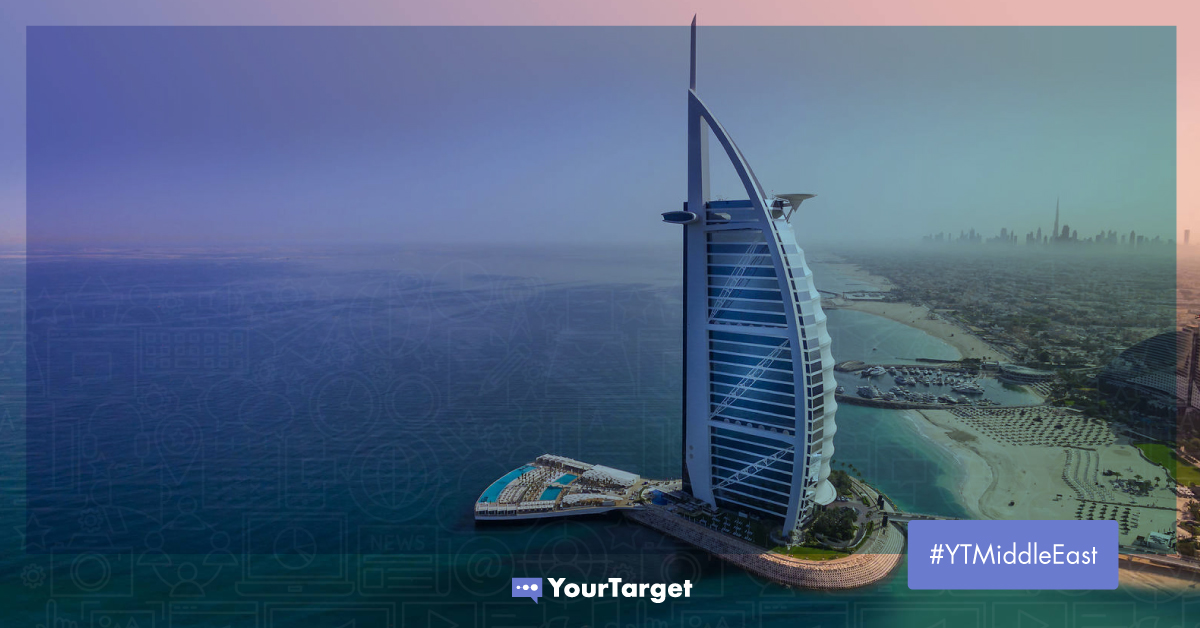As the world bounces back from a global pandemic that saw regions and entire continents locked down to prevent the spread of disease, the travel and tourism industry is experiencing a rapid revival.
The Middle East is quickly becoming a tourist hotspot. From natural beauty and city metropolises, to fascinating cultures and tantalizing cuisines – the region has plenty to offer. What’s more, the Middle East is embracing global travel by providing infrastructures, attractions, and travel apps dedicated to making exploring the region as accessible and enjoyable as possible.
Of course, when planning a trip to the Middle East, one of the first things you’ll think about is where you’re going to stay. The region is home to all kinds of accommodation options, from fancy city apartments to five star hotels, to budget city hostels. So, how do you stand out from the competition?
If you operate a hotel in the Middle East and you want to optimize your digital marketing strategy to embrace the tourism boom, you’re in the right place.
Current state of travel and tourism in the Middle East
It’s predicted that the Middle East’s travel and tourism sector will reach $246 billion this year, which is just 8.9% below pre-pandemic levels.
According to Statista, the contribution of this sector to the MENA job market was expected to reach 7.2 million by the year 2028, but unforeseen lockdowns and the stand still of tourism around the world meant this didn’t come to fruition. In fact, more than 60% of business owners in the GCC (Gulf Cooperation Council) reported that their businesses were negatively impacted due to travel restrictions.
Despite the dent made by Covid-19, travel and tourism is making a comeback. Moreover, the future of the industry is more exciting than ever before with the sector embracing forward-thinking technologies like the metaverse.
10 digital marketing strategies to boost your hotel bookings
Digital and inbound marketing play a key role in promoting products and services in the public and private sector.
The hospitality and tourism industry is saturated with companies promoting similar offerings, so one of the main concerns, as with any business, is how to stand out from the competition and become a leader in the market.
That’s where these digital marketing strategies come in.
1. Leverage the power of social media
Social media is one of the most important tools for marketing any kind of business in today’s hyper-connected, digital age. That applies to hotels too.
Almost 60% of the world’s total population is active on social media. It’s important to connect with your audience by having a presence on various social media platforms, the most popular being Facebook, YouTube, WhatsApp, Instagram, WeChat and TikTok.
Your social platforms can be used to share valuable content about your hotel, the area you’re based (think: activities, lists, video footage of major attractions, etc), and major events that guests can attend. You can also use paid advertising to share deals and promotions, or highlight reviews.
Sharing content regularly and engaging with what your audience has to say on social media can help reach people where they already are, build brand awareness, and encourage a community around your brand.
All of this will help drive traffic to your website where people can make direct bookings. Often, consumers will also turn to social media to find public opinions of a brand – so it’s vital that you have an active presence and are responsive to any questions or reviews – good or bad.
You can also use your socials as a customer service platform as part of an omni-channel marketing approach. Although many people will continue to communicate with you via email or over the phone, there’s definitely a place for offering customer service on social media via instant messaging or comments.

2. Use influencer marketing to your advantage
94% of in-house marketers in the UAE believe social media influencer marketing plays a major role in the success of their brands. In the Middle East, many FinTech companies and fashion brands are already leveraging the power of influencer marketing for building trust and credibility among new audiences.
Influencer marketing is a great hotel digital strategy to boost your reach on social media. Whether you choose to focus on local influencers or reach out to international ones, this is a great way to market your hotel – as long as you have a plan in mind.
First of all, you’ll need to look at your budget. If you’ve recently opened or you’re a small hotel offering boutique or budget services, you should first look to micro influencers that have a smaller reach or those who appeal to your target audience. If you have a larger budget, consider reaching out to international influencers who might be interested in visiting and reviewing/posting content about your hotel.
Make sure that the influencers you reach out to align with your brand mission and values. For instance, if you promote environmentally friendly services or products at your hotel, you could partner with an influencer with the same ethical standing.
3. Optimize your website
Many of your hotel bookings will likely come from online travel agencies that index your property. However, your website is still one of your most powerful marketing tools when attracting guests.
It’s essential that visitors who find themselves on your website have an exceptional user experience. This means ensuring prices, room availability, and booking options are readily accessible and easy to navigate.
Be sure to use your website design skills (or hire someone with them) to create an intuitive user interface. Map the user journey on your website and identify any pitfalls that may come up so you can better optimize the booking experience.
Additionally, mobile accounts for more than 50% of website traffic, so be sure to optimize your website and booking system for mobile.
Make sure you’re using effective call-to-action (CTA) buttons that direct visitors towards making a reservation. Also consider offering on-site customer support services such as a chatbot to streamline the customer journey further.

4. Have an SEO strategy
SEO is one of the key pillars of any B2C marketing strategy. Ensure your hotel website and all of the content that features on it is optimized with keywords that are relevant to your industry. This will help your website to index on search engines, driving traffic and increasing the chance of bookings.
Here are some tips for optimizing your hotel’s SEO strategy to help you stay relevant and outrank your competitors:
- Fill your website with relevant and keyword-rich content
- Develop a link building strategy
- Get a Google Business Profile to ensure people can find you easily
- Optimize your website for voice search
5. Get listed on Google
Carrying on from a point raised in the last section, it’s important to claim and optimize your Google Business Profile to ensure you are easily searchable online. Take the time to write a good description that tells viewers about your hotel and your unique value proposition.
Choose some of the best images or videos that best represent your hotel and be sure to collect and respond to reviews regularly. Include as much information as possible about your business to make it simple for people to locate and contact you.
By doing this, you’ll be able to improve your business’s local search visibility to attract people in the surrounding area who might be searching for a place to stay at the last minute.

6. Offer rewards for direct bookings
Direct bookings are one of the most lucrative reservation methods for hotels.
With direct bookings, you won’t have to pay commission fees to third party booking websites or travel agencies. It also provides you with more opportunities to upsell or cross sell services to guests.
Direct booking is also beneficial for guests as they’ll get the best prices, a more customized experience, and they can make easy changes to their bookings.
Consider offering rewards to visitors who book directly through your website rather than going through a third-party. This might be a discount on their stay or something thrown in to sweeten the deal.
7. Don’t forget about email marketing
One thing’s for sure – email certainly isn’t dead. According to Hubspot, 50% of US users check their personal email over 10 times a day.
Email marketing is a great way to boost your customer retention and help you to acquire new ones.
Here are some tips for using email to the advantage of your hotel marketing strategy:
- Collect new subscribers with an email sign up form. Consider offering incentives for new subscribers, such as discounts, early check-ins, or hotel upgrades.
- Use segmentation to personalize emails and integrate existing customer data.
- Send emails at the right time. Think about where subscribers are in their customer journey, whether they’re at the awareness, consideration, or decision stage and target your emails specifically to reach them at the right time.
- Send follow up emails thanking customers for their stay. Give them the opportunity to leave any feedback, invite them to a loyalty program, and encourage them to come back soon.
8. Define your unique value proposition
There are so many hotels located throughout the Middle East, so what is it that sets yours apart from the competition? Defining your unique value proposition means outlining what makes your hotel special, which will be the factor that convinces customers to make a booking.

Use this information to inform your marketing campaigns and help you stand out from your competitors.
Here, it could be the little things that count. For instance, do you offer guests a bottle of wine upon arrival? Do you offer specific experiences as part of their stay? Or perhaps you invite them to a meal with local cuisine during their stay?
Whatever it is, make sure you provide top-notch customer service to keep customers satisfied.
9. Use images and videos on your website
When it comes to choosing a hotel, the first thing people are going to look for is images and videos. Hire a professional to create visual content that reveals the details of what your hotel interior and exterior really look like.
The same goes for brands marketing fashion products, if a consumer can’t see exactly what they’re buying into – they’ll likely go elsewhere. Be sure to include pictures of the bedroom, bathroom, the swimming pool, and any other details that make your hotel stand out from the rest.
Walk through videos are another great way to help people feel immersed in your property before they even get there.
10. Keep an eye on reviews
Online reviews play an important role in your hotel digital marketing strategy. The majority of people searching for hotels will check the reviews to see what other guests had to say about your hotel.
Moreover, an overall bad rating can immediately push you to the bottom of booking site lists and can be tough to shake. On the other hand, having a good overall rating will help you remain at the top of these aggregation lists, driving more traffic to your site.
When it comes to managing your reviews, here are some best practices:
- Make sure your property is listed on hotel review sites like Google, Tripadvisor, and Booking.com.
- Respond to all reviews, whether they’re positive or negative.
- Engage with guests on social media and make sure you answer any comments or questions they have.
- Share positive reviews or feature them on your website.
- Keep track of competitor reviews to understand what they’re doing well and where they’re falling behind.
- Encourage satisfied guests to leave a review.
Ready to start marketing your hotel in the Middle East?
Digital marketing is essential for any new or existing hotel business.
Ensuring you’re staying up to date with shifts in consumer demands and technological innovations can help you to stay relevant in a competitive market, ensuring your rooms are full and your guests are satisfied.
Want to know more about marketing a business in the Middle East? Download the YourTarget eBook on Digital Marketing Trends and Forecast 2022 + Special Focus on the Middle East.

